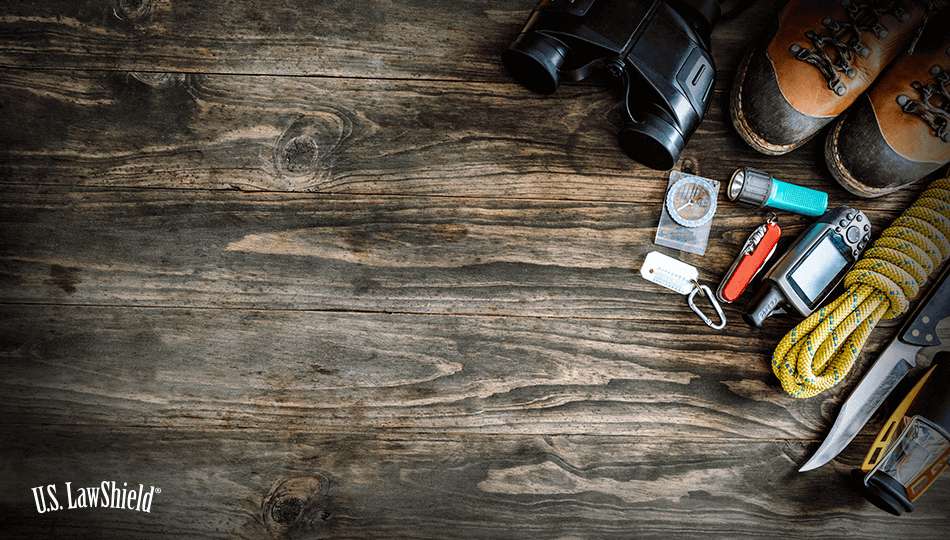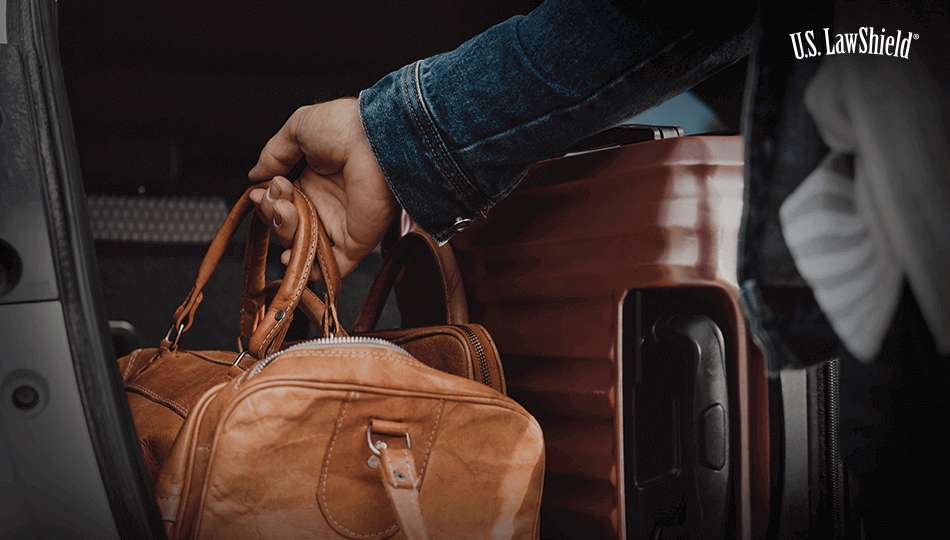
The time for holiday shopping and family get-together preparations is about to reach its summit. People are rushing to and from their vehicles with hardly a second glance at their surroundings. One distracted moment is all a criminal needs to get into your vehicle to steal your belongings, or worse, make you the victim of an assault or robbery. Situational awareness is key: be mindful of your surroundings, gravitate toward lit areas in parking lots, scan the area for any possible threat, and have a plan in mind for retreat or cover. But what happens when a law-abiding gun owner finds themselves in the sights of a criminal?
During the holiday season, many holiday shoppers are caught unaware by theft, robbery, or break-ins of their vehicles. It is critical that you, as a law-abiding gun owner, understand what legal response is allowable and justified for each of these criminal actions before you find yourself in the middle of one of these terrifying incidents.
Understanding When Use of Force is Justified
Knowing the law on when the use of force and deadly force is justified to prevent a crime will help you develop a plan of action before an incident takes place. This is especially important if you carry a handgun. Theft, larceny, and breaking into vehicles are all too common around the holidays. We don’t want you to become a victim, so let’s address each of these.
Theft
Theft, or Larceny, as it is referred to in South Carolina, is the unlawful appropriation of property with the intent to deprive the owner of that property. Generally, larceny alone with no other aggravating factors does not justify the use of deadly force.
Robbery
In South Carolina, robbery is broken into two separate categories: “strong arm” or “common law robbery” is defined in the case law as the felonious or unlawful taking of money, goods, or other personal property of any value from the person of another or in his or her presence by violence or by putting such person in fear. There is no statute on strong arm robbery and it has been developed through the common law or, in other words, case law. It is a lesser included offense of the statutorily defined “armed robbery.” Armed robbery is defined as robbery while armed with a pistol, dirk, slingshot, metal knuckles, razor, or other deadly weapon, or while alleging, either by action or by words, the perpetrator is armed while using a representation of a deadly weapon or any object which a person could reasonably believe to be a deadly weapon. As you can see, robbery, as opposed to theft, does create a risk of serious bodily injury or death, and therefore, deadly force would most likely be justified.
So, if you are a victim of robbery, clearly S.C. Code Ann. §16-11-440(C) is the statutory provision you would rely on in defending yourself from any such crime. That statute states,
“A person who is not engaged in an unlawful activity and who is attacked in another place where he has a right to be, including, but not limited to, his place of business, has no duty to retreat and has the right to stand his ground and meet force with force, including deadly force, if he reasonably believes it is necessary to prevent death or great bodily injury to himself or another person or to prevent the commission of a violent crime as defined in Section 16-1-60.”
Clearly, the use of deadly force is justified when defending against armed robbery as that is a statutorily defined crime of violence. However, it is less clear as to whether one could use deadly force to prevent strong arm robbery, which is not a statutorily defined crime of violence. That case would hinge on whether or not a reasonable person would believe that they were in fear of great bodily injury or death.
Breaking Into Vehicles
Breaking into a motor vehicle is another crime that happens commonly in parking lots around the holidays. This occurs when a perpetrator breaks or attempts to break into a motor vehicle or its compartment with the intent to steal it or anything of value from it. S.C. Code Ann. §16-11-440(A) governs the use of force or deadly force against a perpetrator who is breaking into your vehicle. However, that statute only allows the use of deadly force when someone is breaking into an occupied vehicle. Under our laws, one could not use deadly force to prevent theft of the motor vehicle or the contents that are inside if the vehicle is unattended.
Armed with situational awareness and an understanding of the self-defense laws in South Carolina, you can protect yourself from the criminal element in certain situations and keep yourself on the right side of the law this holiday season.
For any further questions regarding self-defense over the holiday season, call U.S. LawShield and ask to speak to your Independent Program Attorney.
The preceding should not be construed as legal advice nor the creation of an attorney-client relationship. This is not an endorsement or solicitation for any service. Your situation may be different, so please contact your attorney regarding your specific circumstances. Because the laws, judges, juries, and prosecutors vary from location to location, similar or even identical facts and circumstances to those described in this presentation may result in significantly different legal outcomes. This presentation is by no means a guarantee or promise of any particular legal outcome, positive, negative, or otherwise.




Leave A Comment